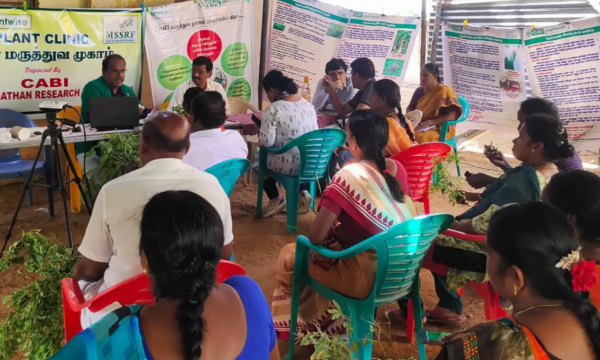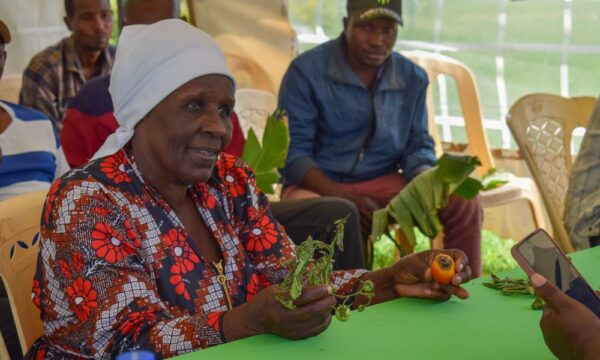Farmers in India are helping in to fight the effects of climate change by lending their data collection skills for research into wheat. Biodiversity International is working with partners such as the Indian Agricultural Research Institute (IARI) and the IFFCO Foundation as part of an initiative called Seeds4Needs. This initiative aims to identify the crop varieties that are likely to perform best under future climatic conditions, via a number of different projects. One such project is currently being run in Vaishali, in India’s Bihar state. Seeds4Needs are using a method called ‘crowdsourcing’ to collect vital data on crop varieties, while farmers benefit by gaining access to more crop varieties. These farmers have been dubbed “citizen scientists” to reflect the time, effort and expertise they contribute to the project. As part of the work, each farmer is provided with seeds from 3 of the 10 wheat varieties being tested. The farmer grows all 3 varieties, then ranks them on characteristics such as yield and quality of grain.
Wheat is highly sensitive to changes in temperature, and therefore stands to be significantly impacted by climate change. It has already been reported that wheat is ripening earlier in areas of Asia, and this has important effects on the quality of the crop. In warmer temperatures, less time is taken in grain filling, resulting in a smaller grain, and therefore a lower yield.
Seeds4Needs is working to avoid reduction in yields by finding varieties that grow well under the specific climate of the area. The data the farmers provide will be analysed, and the results distributed to the community, so that farmers are aware of which varieties grow best in the region.
So far, 800 farmers are contributing to the project in Bihar, which has been seen positively and enthusiastically by farmers. Jacob van Etten, who leads the Climate Change Adaptation team at Biodiversity Intenational, said the partner organisations in India were initially concerned about the scientific validity of the data collected, but he is confident that when they see the algorithms applied to the data, the scientific value of the project will be clear.
The success in India has prompted Seeds4Needs to expand, and it is now being rolled out in Papua New Guinea, where it will focus on taro and sweet potato.
Sources
Farmers become citizen scientists
1 Comment
Leave a Reply
Related News & Blogs
Horizon scanning for climate-driven pest threats can prevent biodiversity loss
On International Day for Biological Diversity, CABI’s Dr MaryLucy Oronje looks at horizon scanning and pest preparedness – approaches that help prevent the spread of invasive species, a major threat to biodiversity. Horizon scanning for invasive pests…
22 May 2025






Reblogged this on Science on the Land.